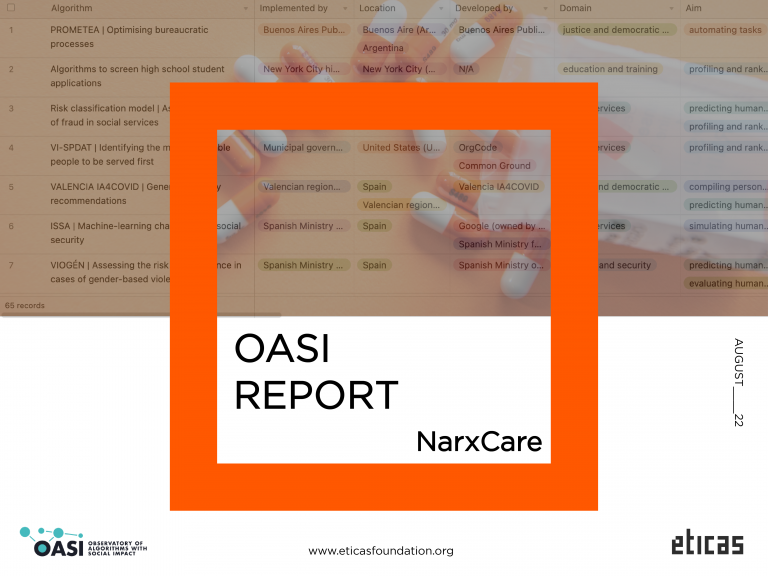Migration
With our great experience at Eticas on researching borders, we see how the ongoing implementation of technology and digital data to control people’s’ movement is not just a technical matter, but it brings about significant transformations to the features, politics and experience of border crossing. Booths that recognize people’s irises, faces and fingerprints are proliferating at airports, ports and other checkpoints. But, unmanaged, such technologies can threaten human rights and open up new forms of discrimination. At Eticas we have worked on different projects concerning the impact of using biometric identifiers and all kinds of technology processes involving the treatment of personal data in migratory processes and borders.
Resources
OUR PROJECTS
Author’s name 1, Author’s name 2, Author’s name 3, Author’s name 4
Europe’s migration and security challenges have prompted the European Union (EU) to develop and enhance multiple large-scale information technology systems (IT systems). Policy and legal developments in this area are evolving rapidly. The European Commission has proposed amending the legal bases for Eurodac and the Schengen Information System (SIS II) and is expected to propose amending the Visa Information System (VIS) in 2018. Such systems provide invaluable support to border management efforts, but also have wide-ranging fundamental rights implications.
Author’s name 1, Author’s name 2, Author’s name 3, Author’s name 4
ABC4EU aims to identify the necessary requirements for an integrated ABC system, interoperable and respectful of the rights of citizens at European level, taking into account the experience gained with the pilots and previous projects together with the future needs derived from the Smart Borders and other initiatives European and national paying close attention to citizens’ rights, privacy and other ethical aspects.
Author’s name 1, Author’s name 2, Author’s name 3, Author’s name 4
The project ORIGINS aims to study the security of the extended border and more particularly passport breeder document security. The underlying idea of ORIGINS is to improve the security and therefore to restore the confidence in the application process and issuance of e-passports, by filling the gaps in security of breeder documents. Indeed, while some assurance approaches have been implemented in a few countries, they remain insufficient to provide breeder documents in complete security and trustworthiness at a time when this is increasingly necessary.
Eticas R&C









